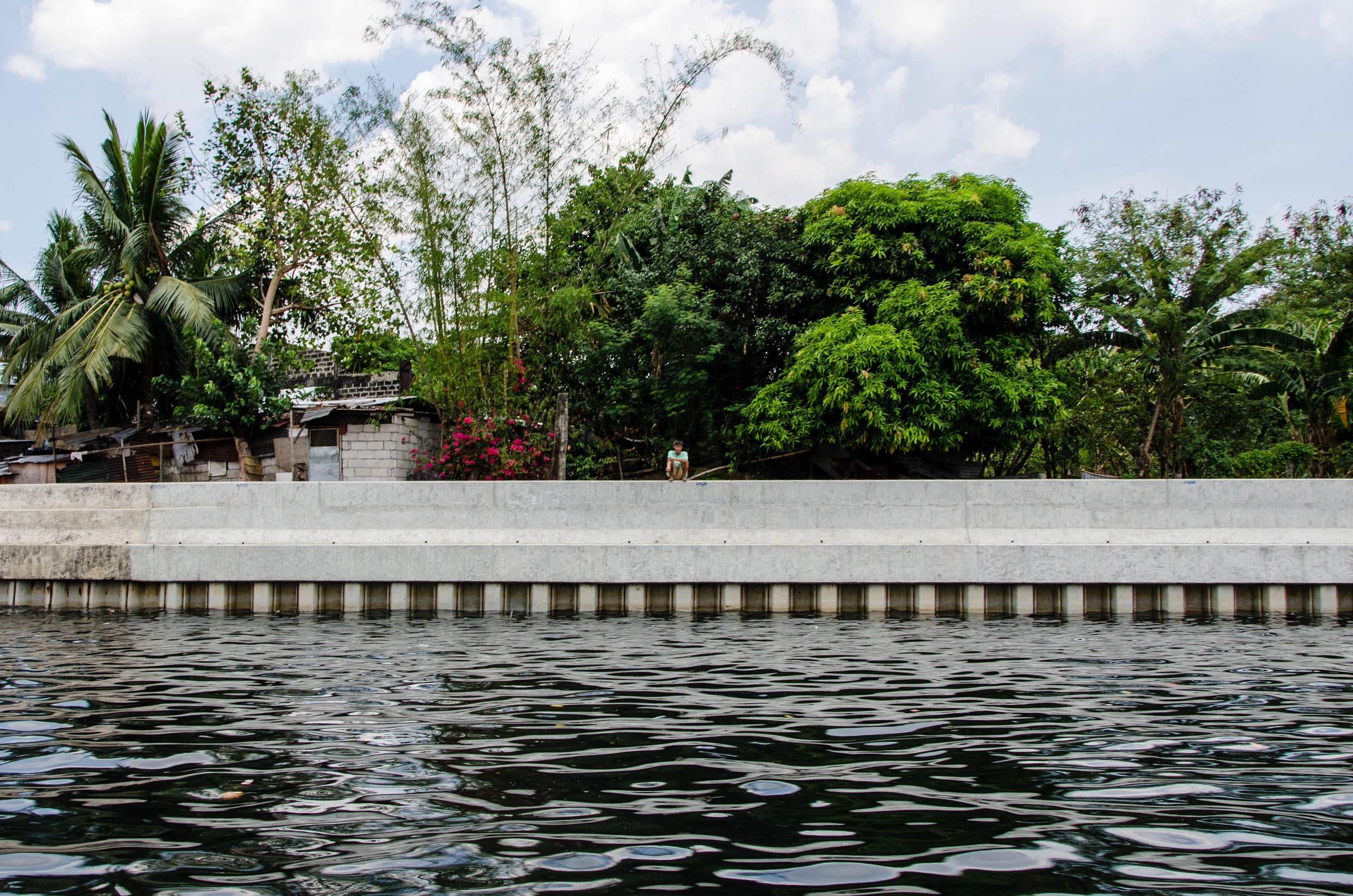Of the River: Unraveling Imaginaries of Water & Resilience in Metro Manila

Metro
Manila,
the
Philippines’
capital,
emerged
from
the
river
delta—bisected
by
an
estuarine
river
and
laced
with
rivulets.
For
a
long
time,
the
city
embraced
its
wet
geography
and
was
adapted
to
the
soak
of
torrential
rains.
However,
now
these
rains
don’t
just
soak
the
city,
they
flood
it,
marking
a
profound
shift
in
perception
and
intervention.
While
its
location
puts
it
at
hydrometeorological
risk,
exposure
to
interacting
factors
have
intensified
its
vulnerability.
As
the
city
has
confronted
its
landscape,
many
ideas
of
what
water
management
and
resilience
should
look
like
have
been
projected
onto
its
flood
infrastructure.
Positioned
within
the
intertwined
nature
of
design,
environment,
and
politics,
Of
the
River
unravels
the
imaginaries
that
have
shaped
Metro
Manila’s
waters.
This
thesis
uses
the
Pasig
River,
which
cuts
through
five
municipalities,
as
an
axis
for
analysis.
Rather
than
a
river
that
strings
together
two
coasts,
the
Pasig
can
be
seen
as
Metro
Manila’s
estuary—a
third
coast—which
has
the
potential
to
reframe
understandings
of
the
city’s
past
and
future.
By
chronicling
the
coevolution
of
the
city
and
its
water,
this
thesis
refutes
reductive
attitudes
of
the
issue
by
framing
Manila’s
waters
as
the
product
of
a
much
longer
transformation—one
articulated
by
underlying
social,
political,
and
economic
conditions.
The
interplay
of
these
conditions
has
manifested
in
top-down
strategic
infrastructure
that
excludes
large
portions
of
the
population,
creating
a
hazardscape
of
marginalization
and
displacement.
Contesting
this
inequity,
people
have
countered
with
bottom-up
tactics,
which
are
numerous
but
underequipped.
In
response,
this
thesis
reflects
on
a
productive
meso-level
between
macro-scale
built
projects
and
micro-scale
social
efforts.
The goal of this thesis is not to provide a solution to the pluvial flooding that Metro Manila experiences, but rather to probe its strategies and priorities. In unpacking how the city has characterized water and resilience, the intention is to uncover and challenge who imaginaries should serve.
The examining committee is as follows:
Supervisor:
Elizabeth English, University of Waterloo
Committee Members:
Jane Hutton, University of Waterloo
Rick Andrighetti, University of Waterloo
External Reader:
Yvonne Battista
The
committee
has
been
approved
as
authorized
by
the
Graduate
Studies
Committee.
The
Defence
Examination
will
take
place:
Tuesday,
January
7,
2020
at
2:00pm
in
the
loft.
A
copy
of
the
thesis
is
available
for
perusal
in
ARC
2106A.